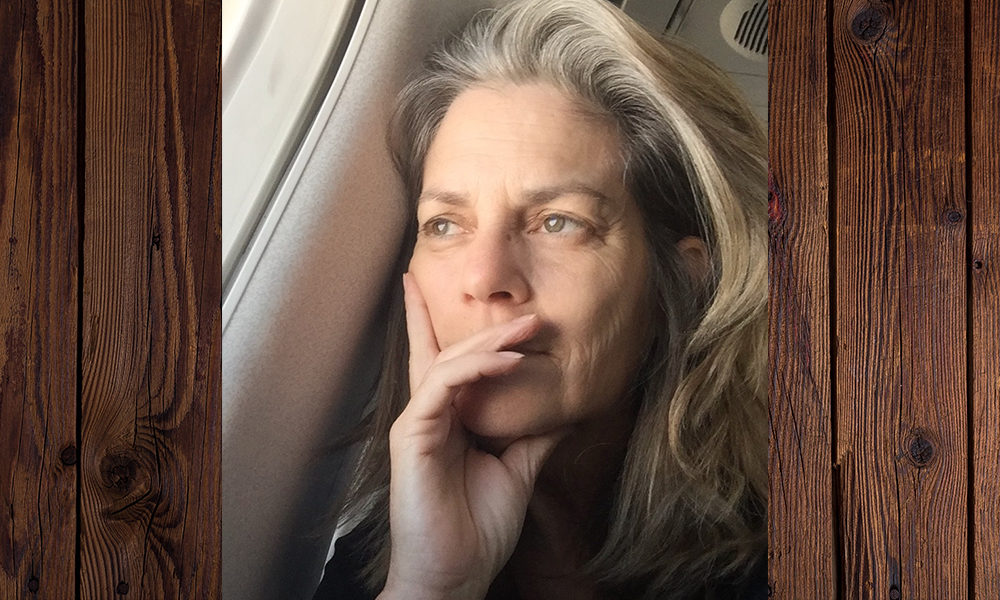Lori Ducey is a Little Rock-based consultant with a rather eclectic background, which includes positions in higher education, international nonprofits, local nonprofits, and service work in South Africa.
“Lori has a heart for service that mirrors our values here at the Institute, particularly in her responsibility to community and her resolve to think creatively to help people solve problems,” said Janet Harris, the Institute’s chief strategy officer. “Her extensive knowledge in nonprofit organization and capacity building helped us to jumpstart our program monitoring and measurement, and we’ve been fortunate to continue to find opportunities to work together for the benefit of our state.”
Organizations Ducey has recently worked with include the USDA and Engage AR-AmeriCorps, as well as World Central Kitchen (WCK), a large, international nonprofit that provides financial assistance to restaurateurs, and meals to disaffected communities in the aftermath of natural disasters. When the COVID-19 pandemic began, WCK was one of several partners in Little Rock that worked together to provide over 680,000 meals to students until schools reopened, and over 45,000 food boxes to families.
“My friends would say that I volunteer a lot, but I say I’m engaged with the community,” she said. “I feel as though if I’m not engaged in the community, then something is missing in me. In order to fill that space, I have to be of service. I want to be of help. I’m lucky enough to be able to provide my time, and sometimes that’s all people need. Sometimes they need ideas. Sometimes they need hands. Sometimes they need hand holding. But through all of that, I continue to learn how I can be of service to different groups in different ways.”
Originally from Tennessee, Ducey moved to Little Rock to take a position at Heifer International in 2008. A few years later, she left Arkansas to work in South Africa for a Peace Corps response program, which recruited professionals to help on projects that needed more expertise. Ducey was assigned to work on a 10-country HIV/AIDS project that was helping build the capacities of small nonprofits that were doing that type of work, and helping them strategize better ways to apply their efforts.
“When I came back to Arkansas, I decided to do more consulting,” she said. “I’m a community consultant. I might even say I’m an organizational development consultant who also looks through the lens of ‘mission effectiveness’ when I work with clients.”
One of the first clients Ducey took on after working abroad was the Winthrop Rockefeller Institute. At the time, the Institute was looking to create a new framework for understanding the data collected from our various programs, and how those programs were having an impact in Arkansas.
In the middle of asking Ducey to consult, Gov. Asa Hutchinson called for a task force to be formed to review complaints and technologies around the use of the herbicide dicamba. The 18-member group, the Arkansas Dicamba Task Force, met at the Institute in September 2017 where staff served as impartial, independent mediators. That was when Ducey truly became connected to the Institute and its mission after helping outline what those dicamba discussions would look like at the direction of Gov. Hutchinson and Secretary of Agriculture Wes Ward.
“I really saw how convening and collaborative problem solving could have such a great impact,” she said. “The Institute is doing such amazing work up on Petit Jean Mountain. They have the talents and the facilities to be able to bring people together. Sometimes, getting people outside of their normal environments can help them be a little more open, a little more relaxed, and that’s when those good discussions begin to happen.”
Back in October, when Engage AR-AmeriCorps wanted to hold a virtual forum on how their members could move the needle on food insecurity, Ducey suggested involving the Institute. The forum was a way to bring people together around two different topics. The first was people having access to fresh, healthy food. It isn’t a secret that there are places around Arkansas where there aren’t any grocery stores, and even in urban places, people without reliable transportation have difficulty getting to those stores.
The second topic was income generation for people who are doing the work. For example, small-scale farmers who can only grow during certain seasons can utilize existing programs that help them extend their growing season so they have the opportunity to get more produce to market. Because of prior work with the Institute, Ducey knew the value the organization could bring to “discussion around discovery.”
“This was really about listening to people, asking them to tell us about programs that already exist, and where there are gaps in service,” she said. “This was going to be the first step where Engage AR-AmeriCorps could come in and help fill those gaps. So based on what we discovered through this forum, a lot of groups are doing similar things across the state and it allowed for someone in Southeast Arkansas to talk about their problems with someone from Northwest Arkansas and how they can work together to have a greater impact. I brought the Institute in because I knew it had the skills to help these folks have good discussions about the work they’re doing and what gaps they see.”


I found this article interesting because because many of us are engaged in volunteering in our communities. I am retired and have time and skills to donate.